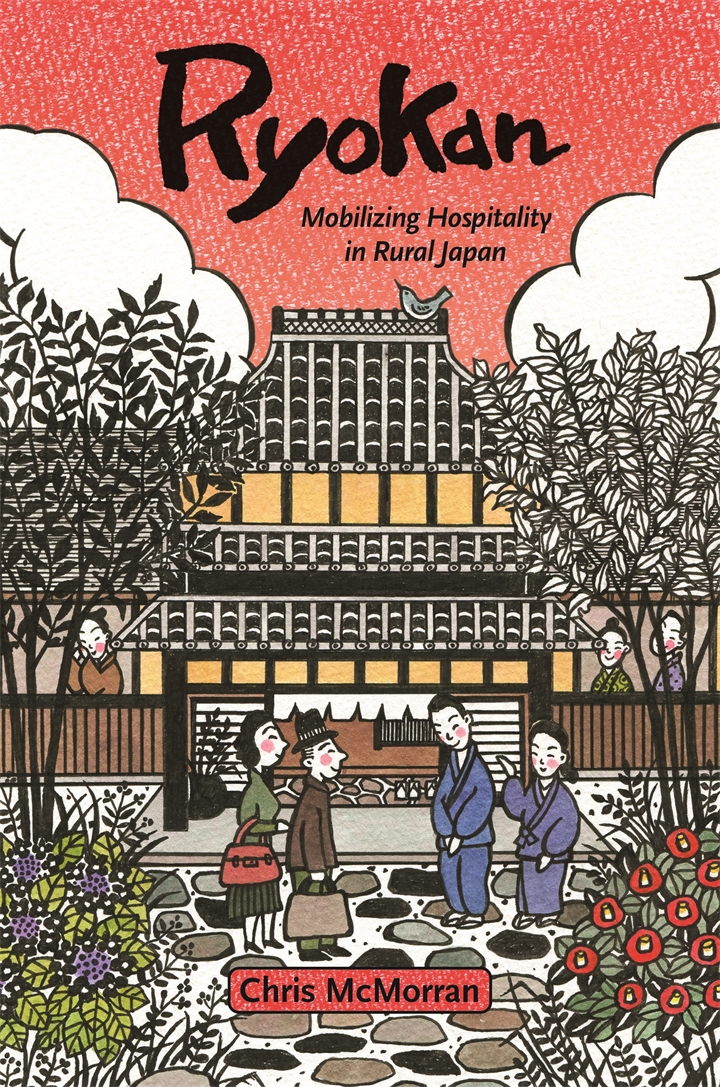Ryokan: Mobilizing Hospitality in Rural Japan
Chris McMorran explores how Kurokawa’s ryokan mobilize hospitality to create a rural escape from the globalized dimensions of everyday life in urban Japan. Ryokan do this by fusing a romanticized notion of the countryside with an enduring notion of the hospitable woman embodied by nakai, the hired female staff who welcome guests, serve meals, and clean rooms. These women are the face of the ryokan. But hospitality often hides a harsh reality. McMorran found numerous nakai in their 50s, 60s, and 70s who escaped violent or unhappy marriages by finding employment in ryokan. Yet, despite years of experience, nakai remain socially and economically vulnerable.
Through this intimate and inventive ethnography of a year in a ryokan, McMorran highlights the importance of both the generational work of ryokan owners and the daily work of their employees, while emphasizing the gulf between them. With its focus on small, family-owned businesses and a mobile, vulnerable workforce, Ryokan makes an invaluable contribution to scholarship on the Japanese workplace. It also will interest students and scholars in geography, mobility studies, and women’s studies and anyone who has ever stayed at a ryokan and is curious about the work that takes place behind the scenes.
Through this intimate and inventive ethnography of a year in a ryokan, McMorran highlights the importance of both the generational work of ryokan owners and the daily work of their employees, while emphasizing the gulf between them. With its focus on small, family-owned businesses and a mobile, vulnerable workforce, Ryokan makes an invaluable contribution to scholarship on the Japanese workplace. It also will interest students and scholars in geography, mobility studies, and women’s studies and anyone who has ever stayed at a ryokan and is curious about the work that takes place behind the scenes.

Publisher
University of Hawaii Press
ISBN
9780824888978
Publication date
1 Jan 2022 – 30 Nov 2022
Specialisation
Social Sciences
Theme
Society
Gender and Identity
Economy
Region
East Asia
Japan